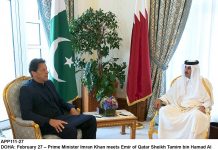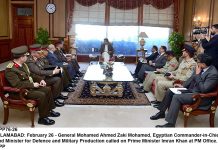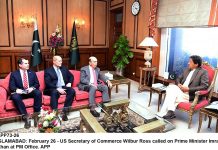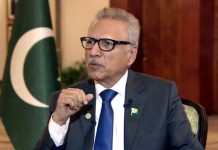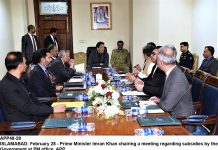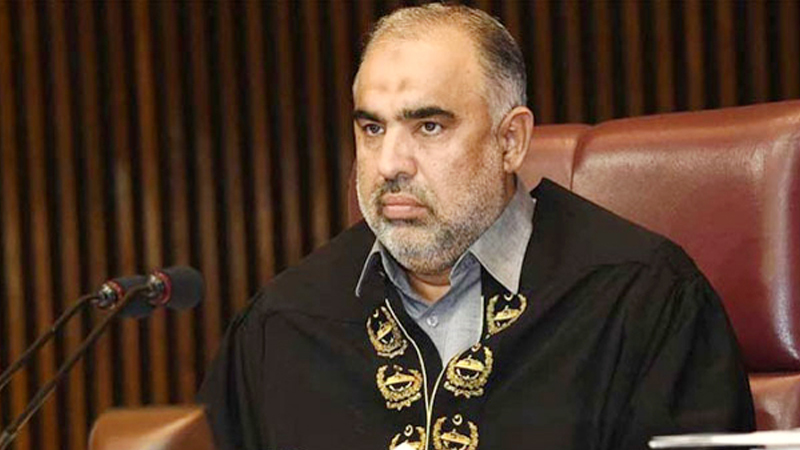
Speaking at a seminar organised by Parliamentary Kashmir Committee and Institute of Conflict Resolution on the occasion of International Peace Day, he said Kashmiris were denied the basic necessities of life for the last one year.
The government was effectively playing its role to highlight Kashmir issue at the international forums, he noted.
The Speaker said India was committing grave human rights violations in Kashmir and 22000 women became widows, thousands of youth were martyred and hundreds of women were raped.
The Parliament will focus on the Kashmir issue and will continue efforts to help resolve it according to aspirations of the Kashmiri people.
He said it was imperative to resolve disputes peacefully to achieve sustainable peace in the world.
The United Nations should play its role to resolve the disputes of Kashmir and Palestine, he added.
Condemning the blatant human rights violations in Indian Illegally Occupied Jammu and Kashmir (IIOJ&K), the Speaker said that Indian troops had been given free hand to persecute the innocent and armless Kashmiri people. He said Pakistan had been making effective efforts to expose the evil face of India before the world.
Asad said the teachings of Islam stressed on peace, adding peace could be attained in the world by following the teachings of Islam.
He said Prophet Muhammad (Peace Be Upon Him) had special attachment to peace and his followers could bring peace in the world. He said people of Kashmir and Palestine were offering sacrifices for their rights and peaceful existence.
The international community should play its role for achieving peace in the world, he added.
Meanwhile, on the occasion of International Peace Day, Chairman (KIIR) Altaf Hussain Wani reminded the United Nations and the influential world governments of their moral and legal obligations vis-a-vis the settlement of Kashmir dispute to ensure permanent peace in the troubled region.
In a statement issued here, the KIIR chief while underlining the UN’s critical role in maintaining International Peace and Security said that it was prime responsibility of the highest forum to prevent conflicts, safeguard peoples’ fundamental rights and create a violence free atmosphere, where people regardless of their race, color and creed could live peacefully without any fear.
Over the decades, Wani said, the UN had played a pivotal role in ending numerous conflicts but it has miserably failed to implement its own resolutions on Kashmir that call for a holding a referendum in the region.
“Had the UN implemented its proposed roadmap on Kashmir there would have been no bloodshed or violence in the territory”, he said adding that it was this lingering dispute that on one hand continues to threaten the Kashmiris’ lives and their livelihood while on the other it poses a serious threat to peace and security in South Asia.
Referring to India’s state terrorism in the occupied Jammu and Kashmir, he said that the UN’s motto of “Long live absolute world peace” could be materialized in real sense only if this deadly conflict, which had consumed tens of thousands of lives, was resolved as per the universally accepted principle of right to self-determination.
Highlighting the humanitarian aspect of the lingering dispute Wani said, “Since several decades people of Kashmir have been the worst victims of this long-drawn conflict; they are being killed, maimed, murdered, harassed and humiliated by the Indian troops, day in and day out”.
Terming peace as the key to socio-economic development, progress and prosperity, he said, “In our world today, there are many countries who have miserably failed to live up to these noble ideals of peace. India, ostensibly, is one of these nations that has emerged as the biggest threat to peace”.
Citing the rising tide of Hindu Nationalism, racism and state violence within the Indian society, he said that under Modi’s government India has become insecure and unsafe for minorities especially Muslims and Christians”, he said.
Voicing his concern over India’s expansionist designs in the Kashmir region, he said that a new regime of laws enforced meant to change the demography of the state has further aggravated the volatile situation and the vulnerability of the marginalized Kashmiri masses, who were fighting for their legitimate cause guaranteed to them by the international community as well as the leadership of India and Pakistan.



